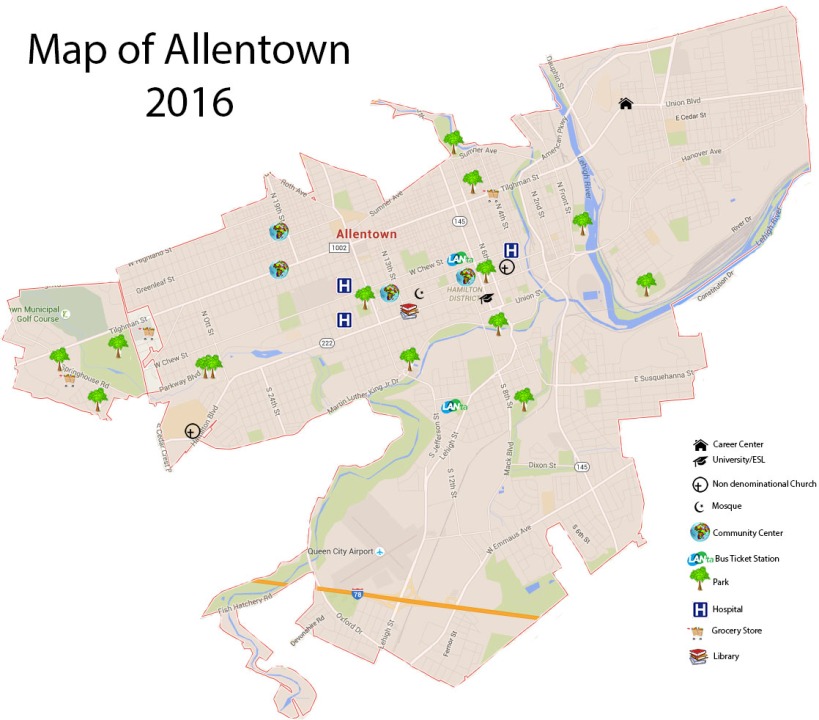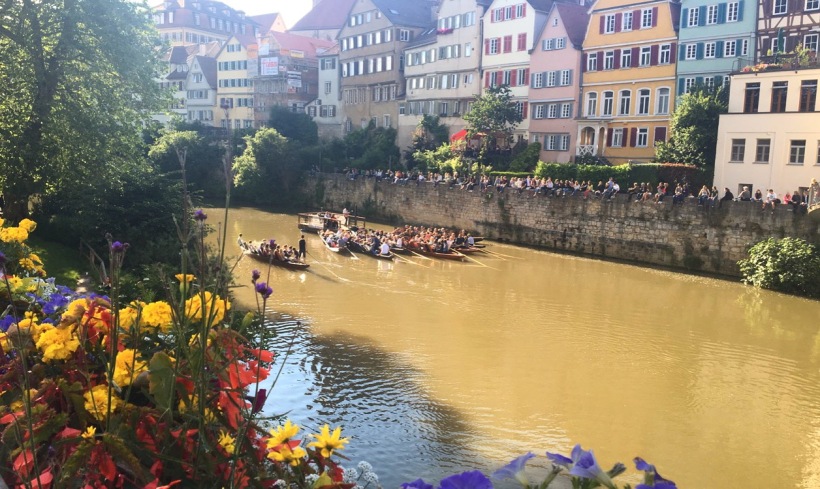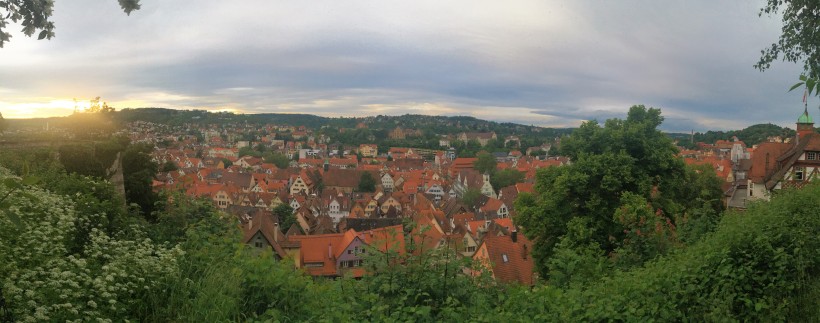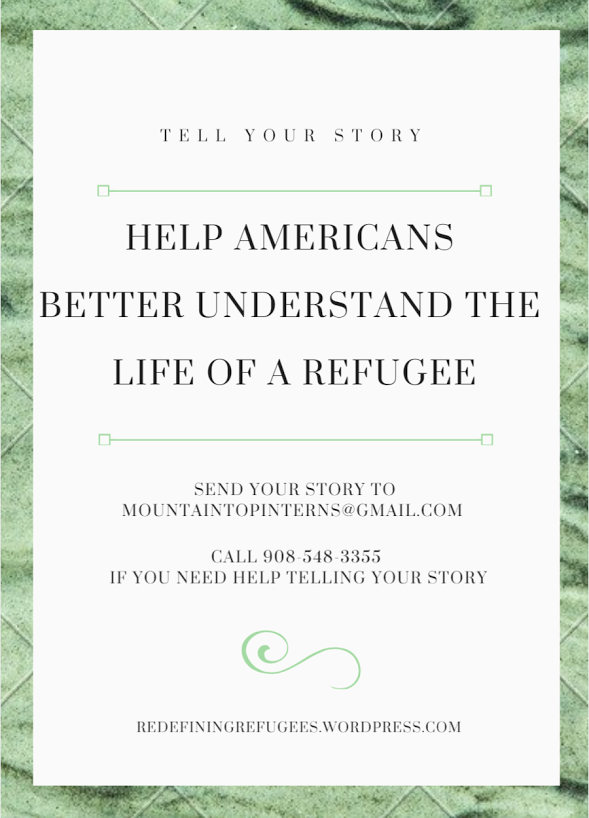Walking into the Newcomer Academy was like being transported back in time. As we maneuvered our way onto tiny benches in the lunch room I suddenly remembered my middle school and those tiny milk cartoons that we used to get at every lunch. But the similarities ended there. Everything about the Newcomer Academy is completely different from the experiences that I had in school.
The students at this school are coming from all over the world and speak various different languages. Some have never been to school before while others have had a highly interrupted education. Some students don’t know how to hold a pencil while others are still struggling with the concept that they are no longer allowed to go home for lunch like they were in their country. The school is underfunded and underrepresented but the work that the teachers are doing is nothing short of incredible.
Rebecca, Aman and I went to the school with the intention of talking to the teachers and getting an idea of what their school was lacking in terms of educational resources. It was our plan to fill the gaps that they themselves did not have the time or the funds to fill. We were quickly overwhelmed with information. The women spoke of the various needs that the students had as well as the needs of the teachers. One teacher commented that they were always in crisis mode. Another teacher mentioned that the majority of her classroom projects were funded by her own personal money. They all agreed that by the end of the day they were completely exhausted.
One teacher works in a classroom with students who have an interrupted education. She has twelve students with varying educational needs and does not have any other teachers to help her. Can you imagine creating a lesson plan for twelve students of varying ages, languages and educational backgrounds? It can’t be easy.
As the teachers spoke our minds were running at a million miles an hour, what should we do to help? Which gap should we fill? There were so many gaps that it was overwhelming. What could we as three students do in ten weeks that would have the maximum impact?
We left the school feeling overwhelmed and inspired. I felt as if I had just met some of the most courageous and inspiring women in the education system but I also felt stressed out just thinking of their daily jobs.
The next day (Wednesday) we sat down to establish a plan for the next ten weeks that would benefit both the teachers and the refugees alike. We settled on the topic of education where we plan to educate both the refugees and the general public. Our goal is to make the transition to Allentown easier for the newcomers and to dispel stigmas that surround refugees and newcomers in America.
We are still in the early stages of our project but our plan is to create an online book complete with videos and pictures that will detail different resources in Allentown. This book will be specifically designed for refugee families who are unaware of the local resources that the town has to offer. We plan on creating videos detailing how to use the transportation system, how to check out a book at the library and how to act in an American restaurant. The culture in America is so vastly different from the countries that these people are coming from and we want to help them assimilate as easily as possible.
The book will also contain lists of restaurants, parks and hospitals as well as an emergency contact list. Over the next month we plan on conducting interviews with teachers, administrators, parents and students to gain a better understanding of what we should and should not include in the book.
Our biggest challenge right now is completing and submitting an intuitional review board (IRB). We have to create an IRB if we plan on conducting any sort of interview or if we plan on publishing our research. We must then submit this IRB to a board who will review it and either reject or approve our proposal. We also need to receive approval from the Newcomer Academy itself and create consent forms which will have to be completed by each willing participant. The majority of the parents and students at the school have a different first language so we are creating consent forms in English, Spanish and Arabic. The only problem is that none of us speak Spanish or Arabic. So if you are reading this and would like to help us translate the forms send us an email at mountaintopinterns@gmail.com. We would love your help!
The last part of our project is to educate the public about refugees. We will be using this blog to do that. Over the next ten weeks we will be sharing our experiences with you as well as stories and images from newcomers and refugees themselves. If you are a refugee in this country and would like to be published on this page please send us an email at mountaintopinterns@gmail.com. Or if you simply have something to say about out blog or refugees in general. We would love to hear from you! We want to increase awareness surrounding newcomers in this world to create a more accepting and understanding global community.
Please share our blog and be sure to click the follow button so that you will receive notifications every time we post! Also, be sure to send us an email if you have something to say, we would love to hear from you!
-Katie


 Yesterday, we met with Karin Amos who is a Professor of Educational Science at the University of Tübingen. Amos discussed the refugee students who are studying or applying to study at the University. Amos told us that there are approximately 40-50 refugee students studying in Tübingen but this number is unconfirmed because refugees sign up as international students and do not always identify as refugees. The town of Tübingen currently has 280 refugees but has promised to take 1000. The rest of the refugees may still be coming to the town or may have returned to their home countries. Originally, it was thought that many of the refugees would be prepared to enter university when they arrived. However, this has not been the case and according to Amos only 10-15% of the refugees have had the educational level needed to apply. The university is very lenient with the documents that refugees are able to provide and do not require them to have the same documentation as German student. Unfortunately, one of the biggest challenges for refugees is the language barrier. There are very limited German as Second Language (GSL) classes and many professors are unwilling to teach these classes. The University has also found that many of the refugees are unaware of the courses offered by the university and they are working on developing resources to spread information around the city. We are hoping to meet with some of the applicants over the course of the next few weeks and get a feel for their experiences.
Yesterday, we met with Karin Amos who is a Professor of Educational Science at the University of Tübingen. Amos discussed the refugee students who are studying or applying to study at the University. Amos told us that there are approximately 40-50 refugee students studying in Tübingen but this number is unconfirmed because refugees sign up as international students and do not always identify as refugees. The town of Tübingen currently has 280 refugees but has promised to take 1000. The rest of the refugees may still be coming to the town or may have returned to their home countries. Originally, it was thought that many of the refugees would be prepared to enter university when they arrived. However, this has not been the case and according to Amos only 10-15% of the refugees have had the educational level needed to apply. The university is very lenient with the documents that refugees are able to provide and do not require them to have the same documentation as German student. Unfortunately, one of the biggest challenges for refugees is the language barrier. There are very limited German as Second Language (GSL) classes and many professors are unwilling to teach these classes. The University has also found that many of the refugees are unaware of the courses offered by the university and they are working on developing resources to spread information around the city. We are hoping to meet with some of the applicants over the course of the next few weeks and get a feel for their experiences.